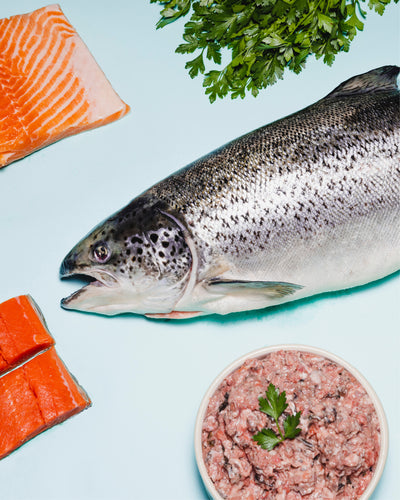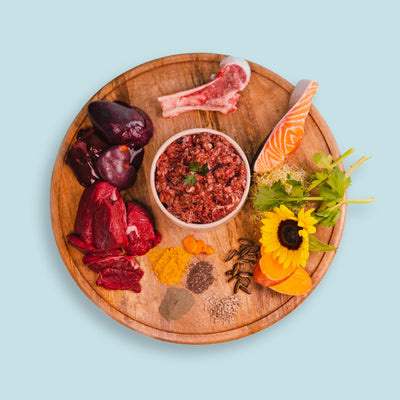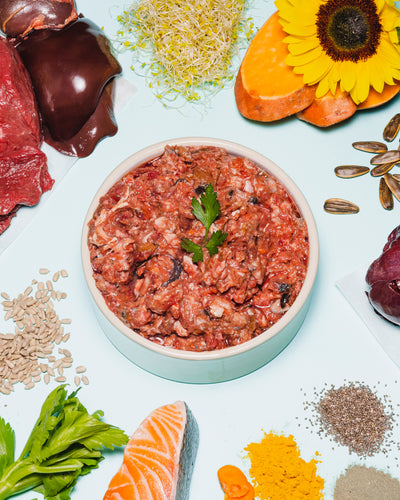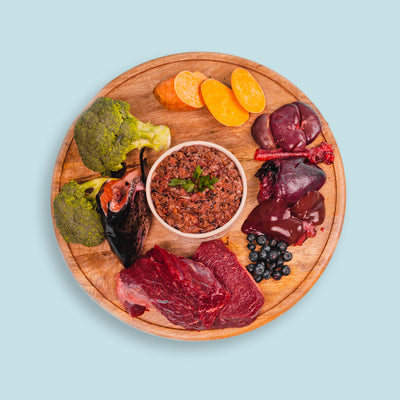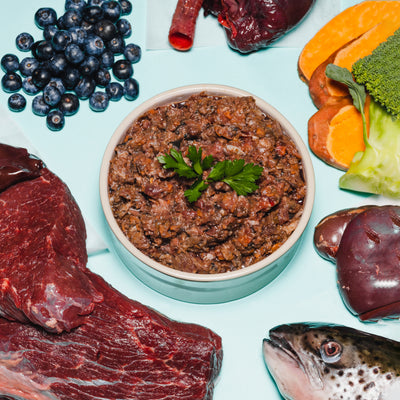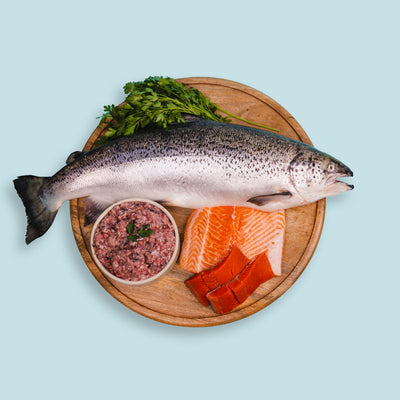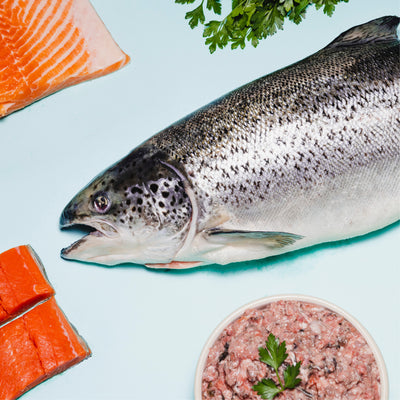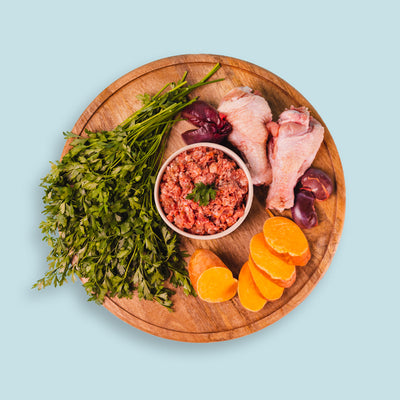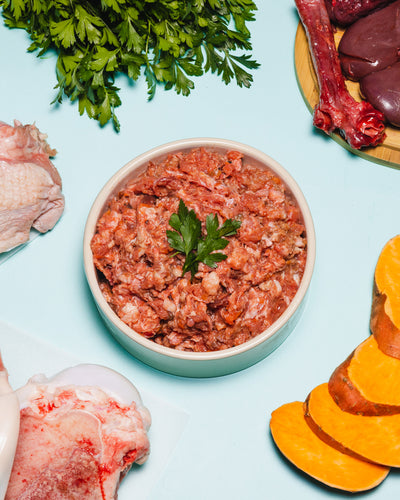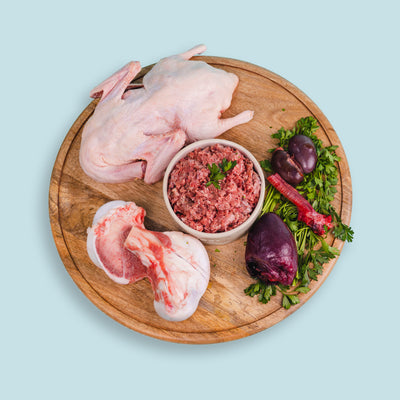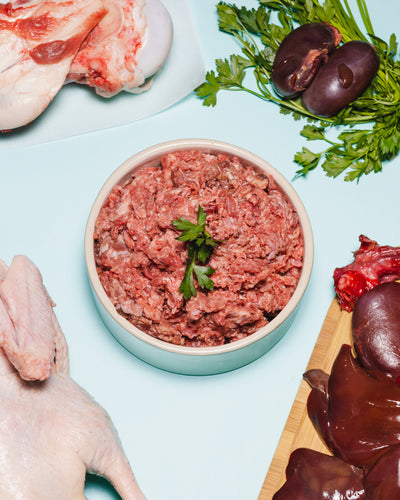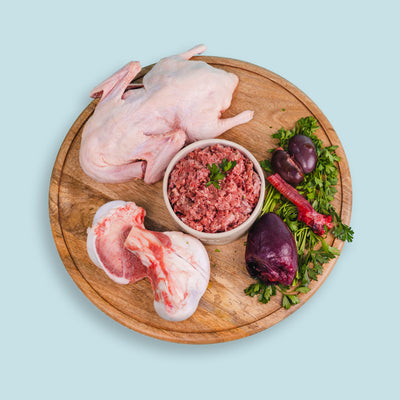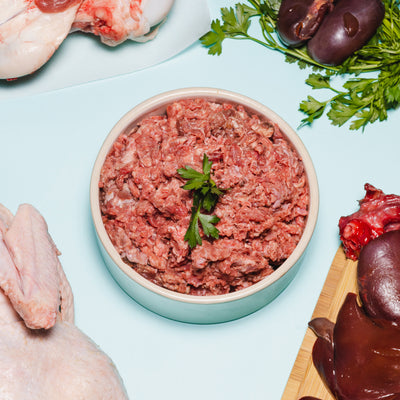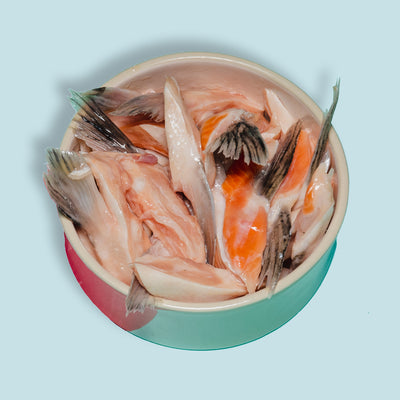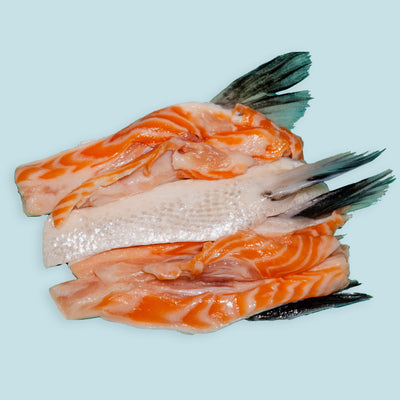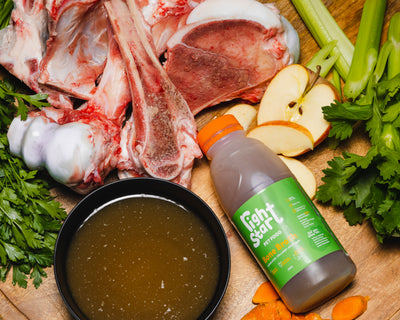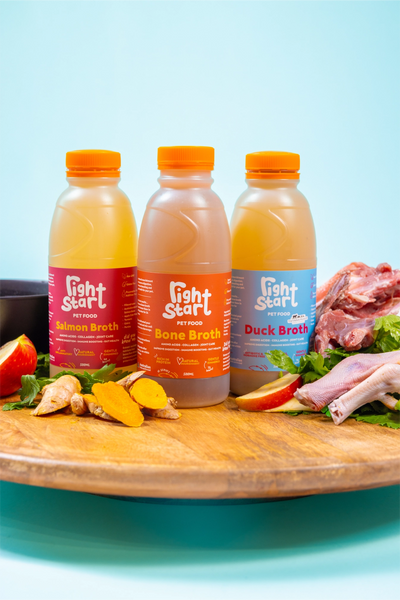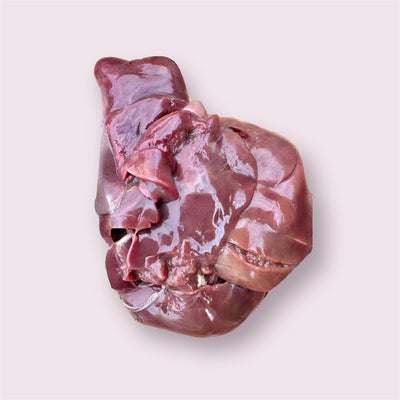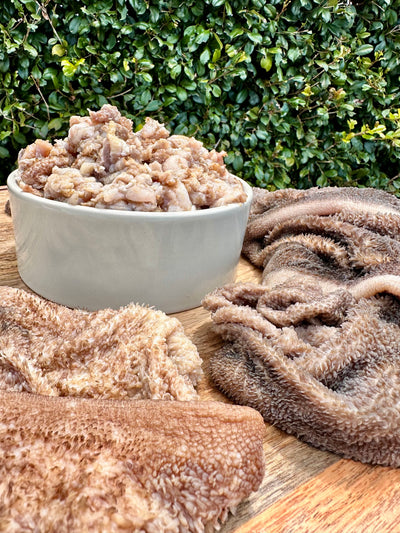All RSPF mixes and products contain frozen raw meat and must be kept frozen until ready for thawing.
Place the required meal amount in the fridge, allowing 24 hours to thaw.
Once thawed, the meal can be consumed within 3-5 days after thawed; keep refrigerated always stored at 4 degrees Celsius.
If needed quickly, meals may be thawed in their sealed packaging in warm (not hot) water.
Before and after use, ensure hands, preparation area, and utensils are thoroughly washed. This is by far the most commonly asked question. Unfortunately, this is not a one-size-fits-all all approach.
After many decades of experience feeding our own dogs, as breeders, and many other dogs of oz from various breeds, ages, life stages, and levels of activity. From a workforce dog to a performance working, sports dog, or family companion.
The best rule of thumb is to be mindful that you are the hand that feeds your dog and understands your dog's needs more than anyone else.
Observing your dog's unique needs and meeting their lifestyle, there are key points to consider.
1. Always experiment with different quantities daily, feeding the optimum weight and correct energy levels for your breed's type, age, life stages, and lifestyle. ie
- Low activity (typical couch potato in active movement little to none)
- Moderate activity (walking, cycling, swimming, running, chasing ball, frisbee)
- High activity levels (sports dog, working, herding, performance, agility)
2. Remember, your pet does not need to consume the same amount of food daily. Like us, we may sometimes overeat or not feel hungry. It's perfectly safe and acceptable to skip a meal when feeding a complete and balanced meal daily. I know for some, it may seem strange to skip a meal, but it actually has very impressive health benefits for your dog.
3. Different life stages require different quantities and frequencies in feeding. A puppy, for example, requires 3 to 4 times the amount during the active growing stage, with working, active sports dogs requiring a higher intake due to their lifestyle and requirements for performance. A mature, active dog requires the least; however, the correct intake to be fed is essential, ensuring healthy maintenance and nurturing for their bones, organ function, and brain development well into their senior years.
4. Every life stage and lifestyle requires alternations that ultimately impact how much should be fed for optimum nourishment and maintenance. A percentage example is a guide only. Every dog is unique; therefore, it's important to alter meal plans according to their individual needs. RSPF makes this easy; we offer complete, comprehensive meal plans for all life stages with our free consultation services.
Need help? We want your fur family to get off to the Right Start every day
Insert a simple questionnaire to follow up with a phone consultation upon receiving the request.
Our expert and experienced RSPF Team offers a personally tailored diet to meet your dog's needs.
Ie.
2-5% body weight growing puppy
2-3% body weight adolescent dog
2% body weight mature dog, neutered dogs 66 (not requiring weight loss or gain, purely maintenance).
2% body weight senior dogs
5% body weight whelping dogs
5-7% working, performance dog
Setting up an RSPF meal plan via a subscription offering the correct portion meals for your dog's individual needs with options to change with your dog's dietary needs — hot, soapy water, maintaining good hygiene practices for you and your pets.
Most RSPF packaging is recyclable; please see the packaging for further information.
Please care and love our planet by rinsing all containers before recycling to ensure the recycling companies accept them.




